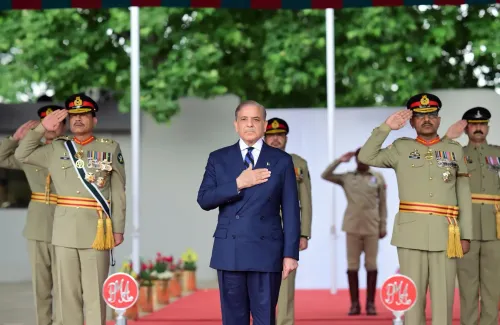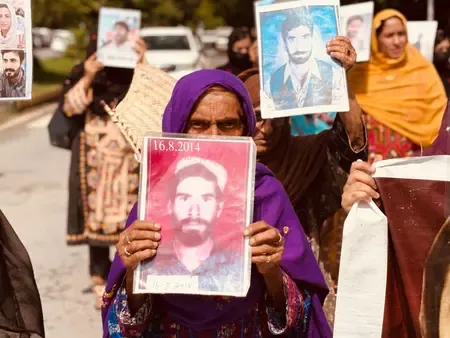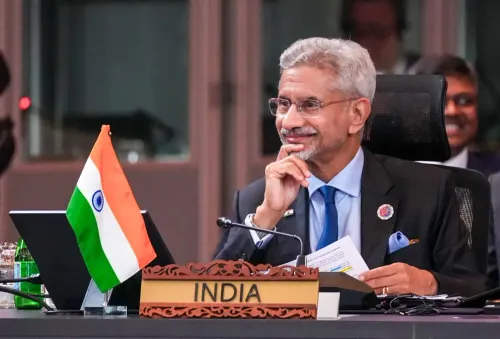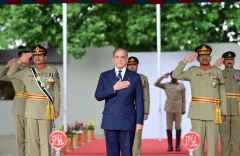Saudi Arabia Requires Polio Vaccination Certificate for Pakistani Travelers
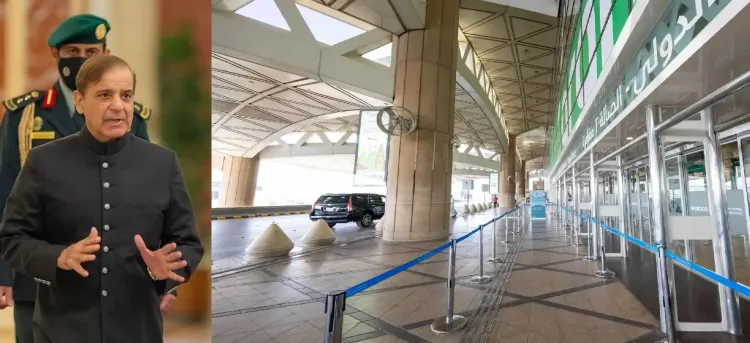
Islamabad, Jan 9 (NationPress) A polio vaccination certificate has been established as a requirement for Pakistani nationals flying to Saudi Arabia, as per the announcement from the kingdom's civil aviation authority.
The General Authority of Civil Aviation (GACA) of Saudi Arabia has indicated that individuals who fail to comply with this recent regulation will encounter strict penalties and potential legal repercussions.
Pakistan, alongside Afghanistan, continues to be one of the last two nations where polio is still prevalent. The country has seen a troubling rise in poliovirus cases, with 68 instances of this debilitating disease recorded in 2024.
Over the years, concerns have been voiced regarding the Pakistani government's ongoing inability to manage the spread of the polio virus, particularly in the tumultuous provinces of Khyber Pakhtunkhwa (KP) and Balochistan, where there has been resistance to polio vaccination efforts and even violence against health workers.
The Saudi government's action comes at a moment when multiple Gulf states have enacted visa bans on Pakistani citizens due to issues related to crime, fraud, and begging.
Recently, 51 deported Pakistanis arrived in Karachi from seven different countries, and 30 individuals were removed from international flights at Karachi's Jinnah International Airport on Tuesday night due to discrepancies in their travel documents and other irregularities, as reported by immigration officials to Geo News.
Previously, the United Arab Emirates (UAE) mandated that visa applicants from Pakistan present a police character certificate.
In addition to Saudi Arabia, the UAE and various Gulf nations have placed an indefinite ban on issuing visas to individuals from at least 30 cities across Pakistan, following a concerning increase in cases where Pakistani nationals have been apprehended for begging, smuggling, drug trafficking, human trafficking, and other criminal activities overseas.
Gulf countries, particularly Dubai and Abu Dhabi, remain favored destinations for countless Pakistani travelers and job seekers.
However, with the ban and escalating visa rejections, the already tarnished reputation of the Pakistani passport—ranked as the fourth worst globally for the third consecutive year—has sustained further irreversible damage.
A notable Pakistani YouTuber recently acknowledged the challenges faced by travelers from the country after Gulf nations halted visa issuance to Pakistani citizens.
"Saudi Arabia and Dubai were once sought-after locations but have now ceased issuing visas. I too encountered significant difficulties when attempting to attend the IIFA Awards. In fact, Saudi Arabia has issued a warning to Pakistan regarding the rising incidents of beggars being apprehended," admitted popular podcaster Nadir Ali in an interview with a businessman who runs a large travel agency in Karachi.
Historically, Pakistan has consistently sent dubious travelers abroad—individuals who ultimately remain illegally in foreign nations by becoming asylum seekers, engaging in illegal drug trade, begging, and human trafficking.
"Since last year, we have observed hundreds of instances where labor visas, visitor visas, and even tourist visas have been rejected for Pakistanis by Gulf nations. The rejection rate is particularly high for those who do not originate from major urban areas in the country," stated Muddasar Mir, Managing Director of Vinci Tours and Travels in Islamabad, in a conversation with IANS.
"Numerous factors contribute to Gulf countries denying Pakistani visa applications. A primary concern involves beggars and drug traffickers, who have been apprehended upon their arrival in the Gulf on either visitor or employment visas. Several Pakistanis have also been caught transporting illegal drugs to Gulf nations. Recruitment companies, especially those tasked with sending laborers to the Gulf, often resort to using counterfeit documents and experience letters. They engage in bribery to navigate through the system," he added.
Many companies in the Gulf have expressed dissatisfaction to their recruiters in Pakistan, citing that the workforce being sent does not even meet the basic qualifications outlined in job descriptions, resulting in significant issues.
"Companies in the Gulf are now hesitant to hire any laborer or technician from Pakistan because they are aware that the workforce from Pakistan is likely to be incompetent. They have found more favorable options in countries like India, Bangladesh, and Indonesia, whose workers are easier to manage," Mir mentioned.
Statistics indicate that over 800,000 Pakistanis apply for visas to Gulf and Middle Eastern countries annually in search of employment opportunities, often using these destinations as a gateway to Western and European countries.
In previous years, more than 4,000 Pakistani beggars have been detained in Saudi Arabia, particularly in Mecca and Medina, where they were caught begging during Umrah and Haj pilgrimages. Numerous Pakistanis have also been apprehended for possessing illegal drugs and engaging in illicit activities.
This situation has ultimately led to stringent restrictions and bans on Pakistani passports and citizens by numerous countries, resulting in visa rejections for thousands of travelers.

